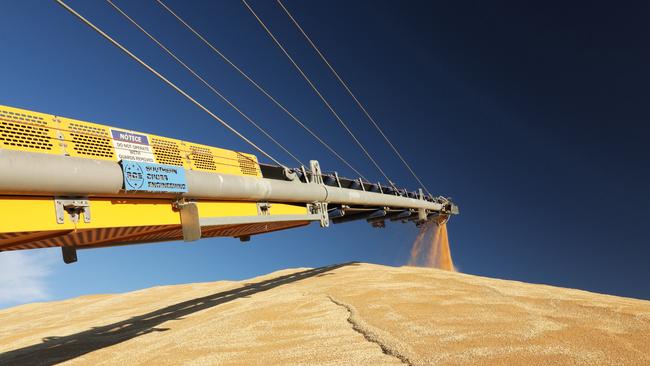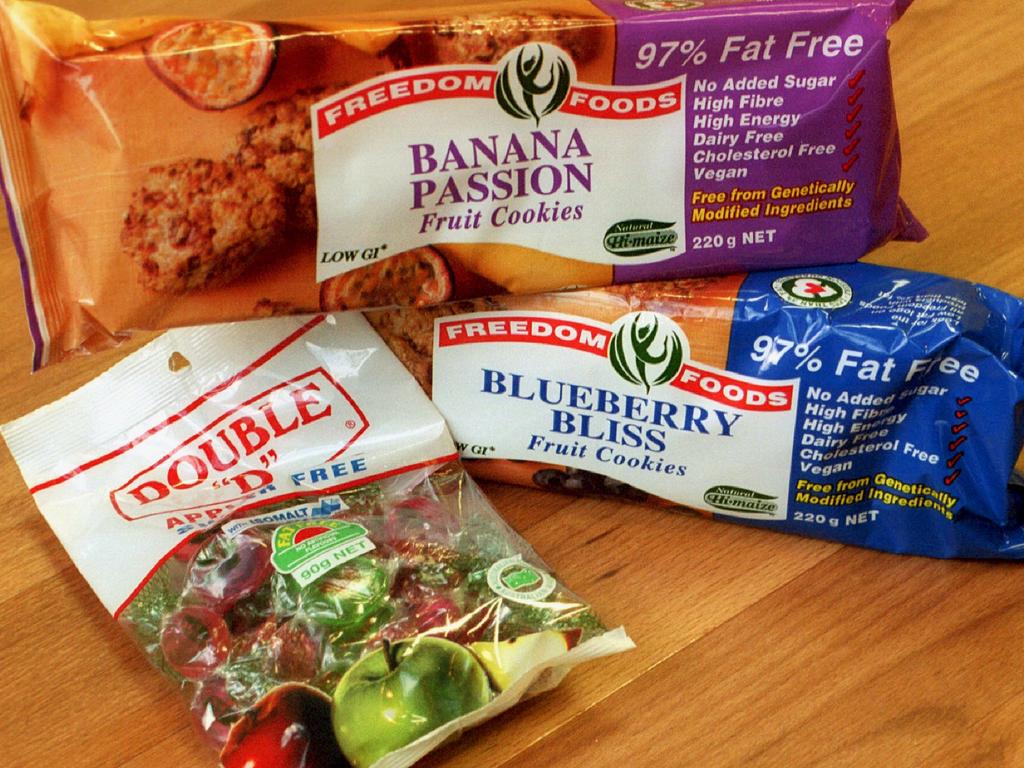GrainCorp doubles its export markets as China grows more hostile
The grain handler and marketer has increased export destinations from around 30 nations to more than 50 in the past year.

GrainCorp has slashed its full-year loss after almost doubling the number of countries it exports to amid escalating tensions between Australia and its biggest trading partner, China.
The ASX-listed grain handler and marketer has increased export destinations from around 30 nations to more than 50 in the past year as it seeks to diversify its business.
It has been expanding its footprint in Ukraine, Canada and India in a move that will reap up to $20m a year.
“The bigger picture is more important — supply and food demand around the globe is relatively well balanced. Any tariffs or barriers to trade distort trade. Ultimately it will just see a shift of where product is sourced and exported and imported to,” chief executive Robert Spurway said.
“One of the great things about being in food is people always need to eat, and that’s the same on a global scale. We are seeing good supply and demand dynamics throughout the world, irrespective of any trade tensions.”
Mr Spurway was speaking as China fired another salvo in its trade war with Australia, banning Victorian timber after it claimed a pest known as black beetle had been detected in 12 shipments of logs from the state — which has battled one of the world’s longest COVID-19 lockdowns. The Victorian government is yet to find any evidence of the beetle.
Beijing has targeted a range of Australian soft commodities from barley to beef, wine and lobsters, following Prime Minister Scott Morrison’s push for an inquiry into the origins of the coronavirus earlier this year.
The Morrison government’s foreign interference legislation also angered Chinese officials.
Mr Spurway said GrainCorp had hedging arrangements in place in case any more Australian products were targeted.
“Any further disruption with China would be pure speculation and we are not going to be drawn on that. In fact, we’re not seeing it with the counterparties we have in place and the trades that we have done.
“But if there were to be further disruption there is a natural hedge, given the competitive prices of Australian grain, so that is not a feature or concern that we have in our outlook.”
China buys about 7.5 per cent of Australia’s wheat exports, or 1.3 million tonnes, worth about $337m each year. Indonesia is Australia’s biggest wheat export market, buying 3.8 million tonnes worth $1.1bn a year.
“China is of course an important market for many Australian exporters across the economy. It is one of the world’s largest and fastest-growing consumer markets. But Australian wheat only has a relatively small exposure to China,” Mr Spurway said.
“It’s in demand in many markets around the world, and current pricing means that Australian wheat and our exports are competitive against other supply markets.”
GrainCorp’s fledgling Ukraine office also aimed to counter any volatility.
“In the Ukraine we don’t have any fixed assets. We have a local office with a team of people focused on connecting with growers and local network operators to be able to efficiently buy grain. Really, it’s a bit of a hedge against our exposure to Australian grain.
“The Ukraine or Black Sea area is growing strongly and our international business is using that grain to sell to customers around the world.”
GrainCorp’s underlying net loss improved 91.1 per cent to $15.9m, while revenue firmed 3.6 per cent to $3.66bn in the year to September 30.
It is forecasting further earnings growth this financial year, with forecasts of a bumper local crop, which Mr Spurway said would be similar to 2017’s record. The group did not provide guidance, saying crop forecasts were subject to “ongoing weather conditions and other variabilities”.
Despite its share price leaping more than 7 per cent to $4.26 in early trade yesterday, GrainCorp’s shares turned down with the market and closed 1.5 per cent lower at $3.94.
“It was a messy result. There was a demerger (of United Malt) and another drought year,” Morgans analyst Belinda Moore said.
“But markets normally look through that.
“The outlook was strong, with a crop similar to 2017, which was a record year. And they’ve done a good job at diversifying the business.”
GrainCorp is on track to complete its Fraser Grain Terminal project in Vancouver, Canada, to which it has contributed $35m in a 50:50 joint venture with Japanese co-op Zen-Noh Grain Corp.
Mr Spurway said the Canadian project was scheduled for completion in the first half of 2021 and would deliver a partial benefit to this financial year’s earnings, with the full benefit to flow from 2022.
Along with its Ukraine and Indian operations, it will contribute $10m-$20m a year to the group’s earnings before interest, taxes, depreciation and amortisation each year.
“Our international business has done a tremendous job in improving our resilience and also diversifying the number of markets that we trade with over the last 12 months,” Mr Spurway said.
The company declared a dividend of 7c a share, fully franked, payable on December 10.







To join the conversation, please log in. Don't have an account? Register
Join the conversation, you are commenting as Logout